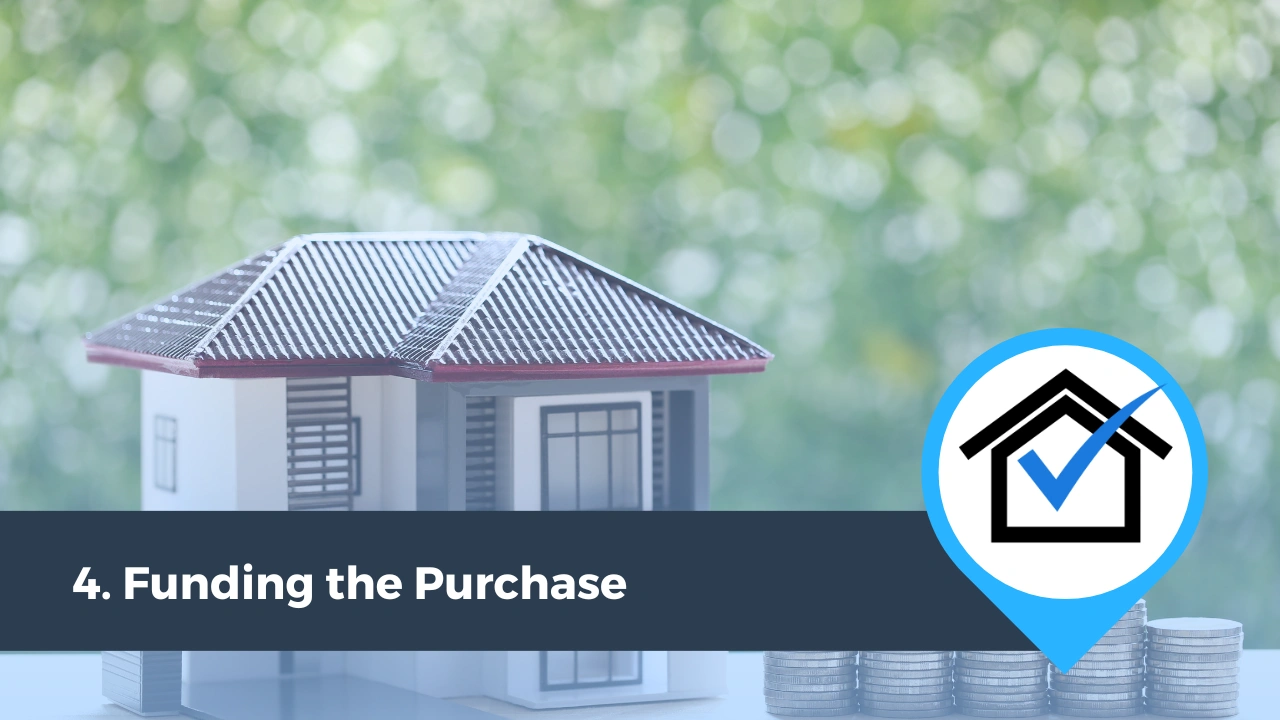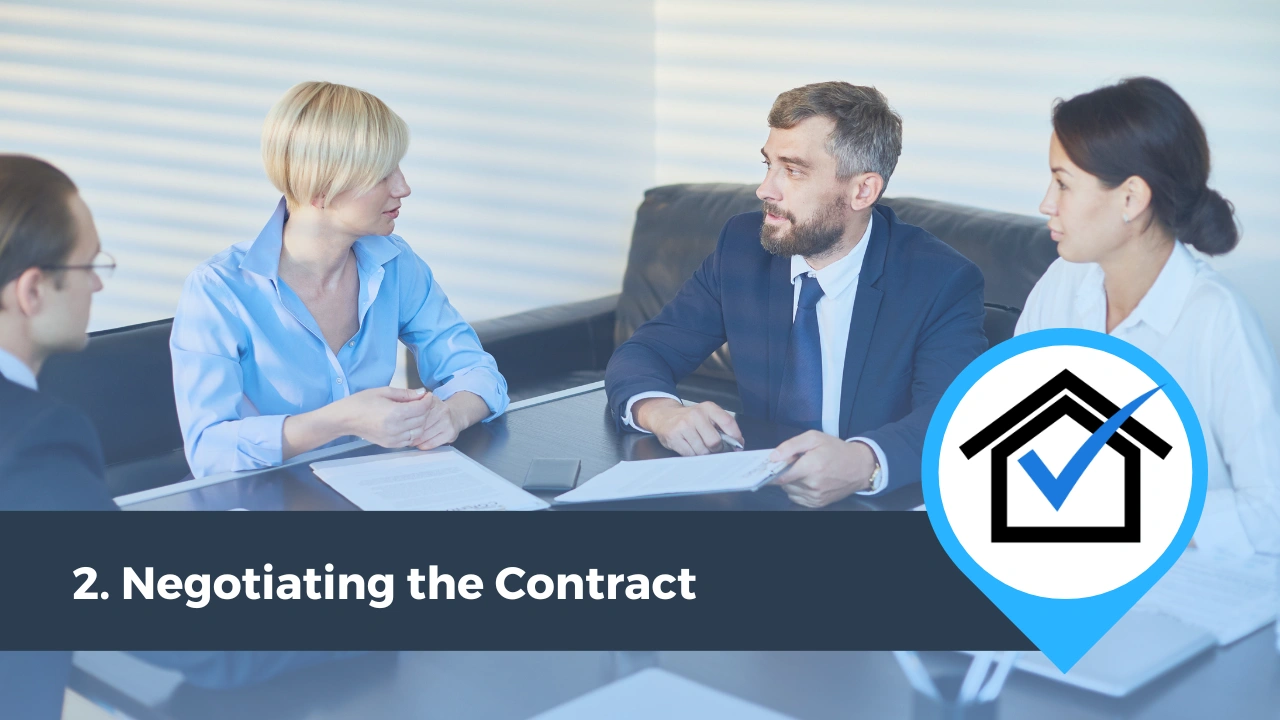
Double Closing In Real Estate: A Guide For Wholesaling Properties
Apr 04, 2025
Diving into the realm of real estate investing involves exploring various strategies and tactics to generate profitable deals.
Among these, one notable strategy stands out for its ability to facilitate quick transactions while minimizing risk: the double closing method.
This approach, widely used in real estate wholesaling, enables investors to seamlessly connect sellers and buyers, earning a profit for themselves in the process without long-term property holding.
Understanding and employing diverse methods, such as double closing, can keep your portfolio vibrant and profitable. Despite the popularity of contract assignment among wholesalers, it's prudent to have an alternative strategy ready, like double closing or double escrow in California.
Known as the double closing meaning, this method serves as a versatile fallback plan empowering wholesalers to proceed with confidence even if a contract can't be assigned.
So, what does this mean for those considering to start wholesaling real estate?
The downturn in property prices presents a favorable opportunity for wholesalers. As prices decline, it potentially becomes easier to source lower-cost properties, providing a wider margin for profits when these properties are sold. The reduction in the number of homes sold also suggests a more cautious market, which might be more open to wholesale strategies that can expedite sales.
Additionally, the rise in mortgage rates might encourage more sellers to consider wholesaling as an option, given that traditional retail buyers might be more hesitant due to increased financing costs.
Therefore, given the current market conditions, it could be argued that this is an opportune time to venture into real estate wholesaling and utilize strategies like double closing to make the most of the situation.
So, what is double closing in real estate? How does it fit into wholesaling properties? And is double closing illegal? This comprehensive guide aims to shed light on these questions, helping you navigate the intricacies of double closing and potentially enriching your career in real estate investing.
Now, let’s dive in and learn how to double close wholesale deals!
- What Is A Double Closing?
- How To Do A Double Closing In Real Estate (5 Steps)
- Double Closing Vs. Assignment of Contract
- When To Double Close In Real Estate Wholesaling
- Advantages & Disadvantages of Double Closing
- Double Closing In Real Estate: FAQs
Ready to Take the Next Step in Real Estate Investing? Join our FREE live webinar and discover the proven strategies to build lasting wealth through real estate.
Whether you're just getting started or ready to scale, we'll show you how to take action today. Don't miss this opportunity to learn the insider tips and tools that have helped thousands of investors succeed! Seats are limited—Reserve Your Spot Now!
What Is A Double Closing?
Simply put, a double closing meaning in real estate (also commonly known as a double escrow) is an investing tactic most commonly done by property wholesalers. This method allows investors to execute two separate transactions in a condensed time frame, leading to its alternative name, “back-to-back closing.”
What is a double escrow? A double closing involves three key players: the original property's motivated seller, the intermediary wholesaler or investor, and the end buyer.
What is a double close? In this strategy, the investor serves a dual role, participating in both the buying and selling transactions. Essentially, the investor purchases the property from the original seller and then, within a short period, resells it to the end buyer.
The double closing process is divided into two distinct transactions: one between the seller and the investor, and the second between the investor and the end buyer.
This division is strategically designed to obscure the investor's profit margins from both the original seller and the end buyer, thereby potentially allowing the investor to secure a larger slice of the deal's profit.
At a granular level, a double closing functions with two separate settlement statements.
The first statement, also known as the HUD-1, details the financial specifics of the agreement between the original seller and the investor. The second statement outlines the negotiated selling price between the investor and the end buyer.
It's crucial to note that, while a double closing is a relatively straightforward process, it's also subject to a variety of legal rules. For that reason, it's recommended that investors seeking to engage in a double closing consult with a legal professional to ensure all procedures are conducted within the legal confines.
While a double close real estate strategy does carry the usual costs associated with a real estate transaction, it also introduces the investor into the chain of title, highlighting their ownership of the property.
Understanding the mechanics of a double closing can be a game-changer for investors, especially those specializing in property wholesaling.
How To Do A Double Closing In Real Estate (5 Steps)
Mastering the art of wholesaling real estate can feel overwhelming—especially when it comes to understanding a double closing. But with the right guidance, this process becomes much more approachable. By breaking it down into five clear and actionable steps, you can confidently navigate a double closing from start to finish:
1. Securing a Property
The first step in a double closing is locking down a property that presents wholesale potential. As an investor, this means putting in the work upfront—leveraging a combination of strategies to uncover the right opportunity. You might turn to the Multiple Listing Service (MLS) for listed properties, tap into your personal network of buyers and investors, or rely on creative methods like “driving for dollars,” where you scout neighborhoods for homes showing signs of distress. Other tried-and-true tactics include working with bird dogs, placing bandit signs in high-traffic areas, sending targeted direct mail, or running online ads to attract motivated sellers.
The goal is to find properties that aren't easy to sell through traditional means—often outdated, neglected, or financially burdensome for the current owner. These are typically owners who are eager for a quick, hassle-free exit and open to working with someone who can offer a fast solution. As the wholesaler, it's important to clearly communicate that you’re stepping in to relieve them of the burden. You’re not just making an offer—you’re solving a problem by taking on the property and all its risks, giving the seller peace of mind and a path forward.
2. Negotiating the Contract
Once the property is under contract, the next step for the wholesaler or investor is to begin negotiations with the property owner to settle on a mutually agreeable purchase price. This crucial stage sets the foundation for what’s known as the A-to-B portion of the double closing, where “A” refers to the original seller and “B” is the wholesaler acting as the buyer.
During this process, the wholesaler carefully drafts a purchase and sale agreement that outlines all terms of the transaction, including price, contingencies, and closing timelines. Unlike traditional wholesale deals that rely on assigning the contract to another buyer, a double closing doesn’t require an assignment clause. Instead, the wholesaler intends to take temporary ownership of the property before immediately reselling it to the end buyer—making the assignment language unnecessary and often avoided to maintain discretion and control of the deal structure.
3.Finding an End Buyer
Once you've secured the property under contract and drafted a solid purchase agreement, the next critical step is to identify a serious and qualified end buyer.
This individual is someone ready to purchase the property directly from you, often before the original transaction with the seller is fully completed.
Because you’re essentially acting as a middleman in a wholesale deal, timing and clarity are everything.
*Want to learn the proven strategies for finding cash buyers? View our video below where Alex Martinez covers How To Find Cash Buyers For Wholesaling! [FREE]
It’s vital that your agreement includes key clauses that clearly define your role, limit your financial liability, and establish firm expectations.
These provisions not only protect your interests but also minimize the chances of the buyer walking away last minute, which could jeopardize the entire transaction.
A well-crafted agreement lays the groundwork for trust, reduces risk, and ensures that all parties are on the same page moving forward.

4. Funding the Purchase
This step is all about ensuring you have the capital necessary to complete the first leg of the transaction—buying the property directly from the seller. For most real estate wholesalers, using personal savings to fund this purchase isn’t realistic, which is why many turn to alternative funding sources.
Short-term personal loans or hard money loans are commonly used in these situations, offering fast access to capital with minimal underwriting. However, it’s important to understand the risks.
Hard money loans often come with steep interest rates, origination fees, and tight repayment windows. Failing to meet those terms could eat into your profit or derail the deal altogether. Always weigh the costs of financing against your projected return, and if possible, establish relationships with trustworthy lenders in advance.
Proper due diligence and careful planning at this stage can make or break the entire double closing process.
5. Double Closing or “The Dance”
The final step in the double closing process is where everything comes together—it's time to execute both transactions. First, you’ll complete the A-to-B transaction, officially purchasing the property from the original seller. This step includes handling all the necessary closing costs, signing the final paperwork, and ensuring that the title is transferred properly. Immediately following this, you’ll move into the B-to-C transaction, where you sell the same property to your end buyer, often on the same day or even within minutes.
Timing is critical, as both closings must align perfectly to ensure a smooth transition of funds and ownership. This process requires precise coordination between all parties involved, including your buyer, seller, title company, and sometimes a transactional lender. Due to its complexity, working with an experienced and investor-friendly title company is key—they’ll help manage documentation, disbursements, and legal requirements to ensure both closings are successful without delays or legal hiccups.
Read Also: How To Wholesale Multifamily Properties (7 Simple Steps)
Double Closing Vs. Assignment of Contract
In the world of real estate wholesaling, the two primary strategies investors use to secure profits are through double closing or contract assignment. Understanding the differences between these two methods can empower you to make the best decision for your specific situation.
Assignment of Contract: This strategy involves the wholesaler getting a property under contract to purchase with an assignment clause and then assigning their right to purchase the property to another buyer. Essentially, the wholesaler is selling their "equitable interest" or rights to buy the property, but they do not claim the title. Therefore, the wholesaler is never the property owner and does not appear on the chain of title. The advantage of this strategy is that the wholesaler typically doesn't need to provide any funding, and they don't have to pay closing costs. However, the assignment fee collected during closing is their only source of profit.
Double Closing: In contrast, a double closing involves the wholesaler briefly owning the property before selling it to an end buyer. In this case, the wholesaler appears on the chain of title. This strategy requires two separate closings, each with their own set of closing disclosures, HUD-1 or other settlement statements, and title insurance/closing fees. Although double closing is generally more expensive and capital-intensive than an assignment of contract, it allows for the possibility of higher profits. The seller and the end buyer are not privy to the wholesaler's profit margins in a double close, reducing potential conflict over the markup.
The choice between these two strategies depends on the investor's comfort with risk, capital availability, and their relationship with the seller and buyer. An investor must weigh these factors to determine the best approach for their wholesaling business.
*For in-depth training on real estate investing, Real Estate Skills offers extensive courses to get you ready to make your first investment! Attend our FREE Webinar Training and gain insider knowledge, expert strategies, and essential skills to make the most of every real estate opportunity that comes your way!
When To Double Close In Real Estate Wholesaling
Double closing wholesaling is a strategy often used in certain circumstances, rather than being the default approach. While it's typically more advantageous to assign contracts when possible due to the reduced need for upfront capital and lower fees, there are scenarios where a double close becomes the better choice.
Consider doing the double close strategy if you find yourself in the following situations:
- Discretion Required: If your profit margin in a deal is significantly high, it could potentially create unease or dissatisfaction with the seller or the end buyer if they knew the exact figures. In this case, a double close can maintain discretion over your earnings since the real estate transactions are conducted separately and neither party can discern your profit.
- Legal Compliance: In certain states, if you're a wholesaler without a real estate agent license, you may need to conduct a double close so that a title company can correctly manage the paperwork. This ensures that your wholesale real estate dealings are carried out legally and without potential complications.
- Financial Resources Available: If you can comfortably afford the closing costs associated with obtaining a loan or conducting a direct purchase from the seller, a double close can be beneficial. This strategy can help safeguard your relationships with both parties involved, as well as protect your profit.
Remember, the best strategy always depends on the specifics of the deal and your unique circumstances as an investor. Always carefully consider the various factors at play before deciding to proceed with a double close.
If you're looking to level up your real estate knowledge, we invite you to watch our video on How To Wholesale Real Estate Step by Step (IN 21 DAYS OR LESS)! Real estate expert, Alex Martinez, covers how you can start wholesaling today with no money, without any marketing, without needing a real estate license, & without needing experience!
Read Also: Is Wholesaling Real Estate Worth It? An Investor's Guide
Advantages & Disadvantages of Double Closing
As with any investment strategy, double closing presents both benefits and drawbacks. It's crucial for investors to weigh these against each other before proceeding with this method. Here are a few of the pros and cons of double closing real estate.
Advantages Of Double Closing
- Confidentiality: A double close allows for more privacy since there are two separate closings. Your net profit remains confidential from the original seller and the end buyer, which can be particularly beneficial if you've made a high profit or sold the property for more than the original seller believed it was worth.
- Risk Mitigation for the Seller: In a double close, the seller does not have to worry about finding a buyer, especially beneficial if the property is distressed. Also, if the buyer backs out, it becomes the wholesaler's problem.
- Optionality for the Investor: If assigning a contract isn't viable, the ability to facilitate a double close increases the likelihood of closing a deal.
Disadvantages Of Double Closing
- Increased Expenses: Double closings are typically more expensive than a simple assignment as there are two closing transactions. This means the wholesaler/investor must be prepared to pay closing costs twice: once when buying from the original owner and again when selling to the end buyer.
- Additional Workload: Double closings require more effort from the investor/wholesaler. Managing two real estate transactions, two separate lines of communication, and all the associated paperwork can be taxing.
- Legal Restrictions: Double closings aren't legal in every jurisdiction, so it's vital to check local laws before proceeding.
- Potential for Increased Complexity: Since double closings involve multiple parties and steps, coordinating schedules and facilitating the process can be challenging. Some closing agents may lack the experience or willingness to manage double closings.
- Potential Risk for the Buyer: From the end buyer's perspective, the lack of direct contact with the original seller limits their ability to negotiate or understand the property's history.
Remember that while the potential for higher profits can be tempting, the complexities and risks associated with double closing require careful consideration and planning. As always, it's crucial to understand the market, consult with knowledgeable professionals, and stay informed about local laws and regulations.
Read Also: The Pros & Cons Of Wholesaling Real Estate
Double Closing In Real Estate: FAQs
The intricacies of double closing can be complex, and naturally, you may have some questions. In this FAQ section, we aim to address the most common queries and provide clear, straightforward answers to help simplify the process for you.
Is Double Closing Illegal?
Double closing is legal in many U.S. states, however, every state will have its own requirements and rules around conducting a double close. That being said, double closing is legal in many U.S. states. Investors should always work with a local reputable real estate attorney to stay up to date on the latest rules and regulations.
Many states do allow wholesaling and double closing with caveats around the following points:
- Dependent on whether the investor is a principal in the deal, meaning the investor is purchasing the property for him/herself.
- Dependent on the source of funding used for both sides of the double closing.
- Dependent on if the investor is a licensed real estate agent or not.
There are many misconceptions about the concepts of wholesaling and double closing. This confusion can scare off investors from perfectly legal investing opportunities. It’s very important to seek real estate legal advice and understand what you can and cannot do in your state.
Here are a few examples of states whose wholesaling laws differ slightly:
- California: Double closing is legal in California. However, the “same day” double close will actually take place over at least two days. The B to C transaction will close at least one day after the A to B transaction has closed. This allows for the minimum required “title policy procurement” time mandated by the state of California. Each portion of the double close must close independently with its own funds.
- Flordia: A double close wholesale deal is legal in Florida. However, investors can no longer utilize the end buyer’s purchase funds to fund their purchase of the subject property from the original seller. Therefore, investors must front their own capital to close on the A→B purchase.
- Texas: Double closing is also legal in Texas with a few caveats. Just like in Florida and California, investors can no longer utilize the C transaction purchase funds to fund the A→B portion of the double close. An investor can utilize transactional funding or hard money to fund the initial purchase. Transactional funding may also be called “flash funding”, “same-day funds”, “ABC funding”, or “one-day bridge loan”.
Can You Double Close With No Money?
Whether you need money to double close or not is dependent on your specific state and if escrow funding is or isn’t an option.
- If Escrow Funding Is An Option: If the state allows the A→B closing to be funded with B→C funding, the wholesaler/investor does not need to bring money to the table for closing. In this case, the end buyer is ultimately bringing the money that will fund both deals. The end buyer brings funds to purchase the subject property and the title company holds this money in escrow.
- If Escrow Funding Is Not An Option: If the state will not allow funds from the second closing to be used for the purchase in the first closing, the investor must bring his or her own capital to the table. If the investor does not want to utilize his or her own cash, transactional or short-term funding can be leveraged.
Is Double Closing With Title Companies Normal?
Some title companies can perform double closings. However, given the unique timing needs and multiple moving parts of these types of investment deals, it is vitally important that the investor works with an investor-friendly title company or a seasoned closing attorney.
Many title companies will either not know how to execute a double closing or refuse to do them. It’s important to interview multiple title companies and ask for recommendations from your investor network to locate investor-friendly ones.
How Do You Fund A Double Closing?
Funding a double close can happen in one of two ways.
The first way is if the end buyer is bringing funds to purchase the subject property (B→C) and the wholesaler/investor uses those funds to fund the first closing at the same time (A→B). Although many states no longer allow this practice, wholesalers/investors can either utilize their own capital or find transactional funding.
Transactional funding is when a lender will loan up to the full amount of the deal to the investor/wholesaler to complete the A→B purchase. This allows the investor to close without leveraging his/her own money.
The transactional funding lender will typically charge a percentage of the loan as well as an origination fee. These fees are not cheap! However, if the deal is sweet enough and the investor has found that the deal makes sense, this funding may be worth it. Transactional funding lenders will typically require a quick turnaround time to get paid back. Therefore, a double close must take place quickly, typically within hours or 1-2 business days, for this funding source to work.
Traditional mortgage options such as a conventional or FHA loan will not work with double close investing deals due to national regulations and seasoning requirements.
Final Thoughts On Double Closing
Double closing presents its own set of challenges and complexities but can be an essential strategy in real estate wholesaling, offering advantages in terms of profit and confidentiality.
Understanding its process, evaluating it against contract assignment, knowing when to use it, and being aware of its pros and cons can equip you with a broader set of tools to excel in your real estate investing journey.
However, knowledge alone isn't enough. It's crucial to learn how to apply these strategies in real-world scenarios effectively.
Therefore, we invite you to attend our FREE training course. Here, you'll gain in-depth insights, practical tips, and learn from experienced professionals who've successfully completed numerous wholesale deals.
So why wait? Take the first step towards enhancing your real estate career. Sign up for our free training today!
Ready to Take the Next Step in Real Estate Investing? Join our FREE live webinar and discover the proven strategies to build lasting wealth through real estate.
Whether you're just getting started or ready to scale, we'll show you how to take action today. Don't miss this opportunity to learn the insider tips and tools that have helped thousands of investors succeed! Seats are limited—Reserve Your Spot Now!
*Disclosure: Real Estate Skills is not a law firm, and the information contained here does not constitute legal advice. You should consult with an attorney before making any legal conclusions. The information presented here is educational in nature. All investments involve risks, and the past performance of an investment, industry, sector, and/or market does not guarantee future returns or results. Investors are responsible for any investment decision they make. Such decisions should be based on an evaluation of their financial situation, investment objectives, risk tolerance, and liquidity needs.












